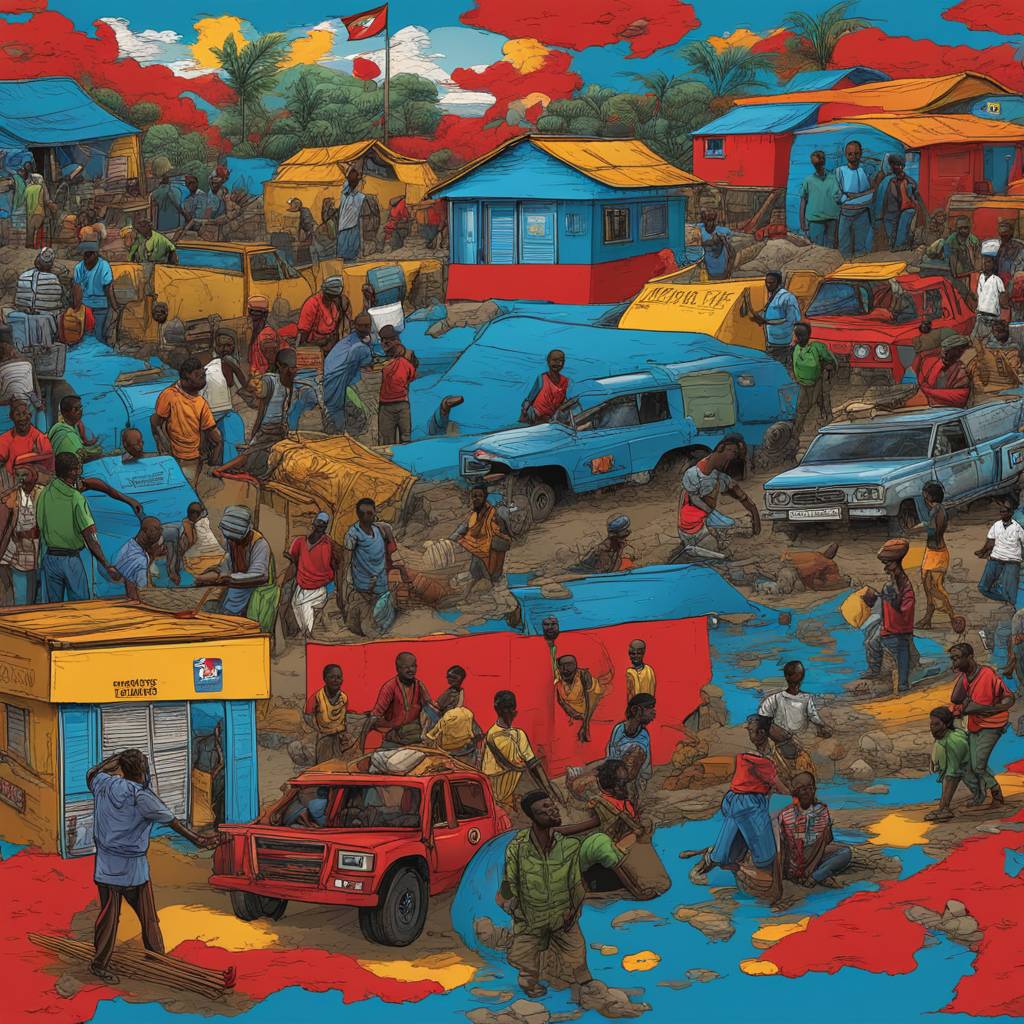The situation in eastern Democratic Republic of the Congo is at a breaking point, with war on the doorstep of Goma city and a humanitarian crisis reaching near catastrophic levels. More than 7.1 million people have been displaced in the country, with 800,000 people fleeing their homes in just three months. The armed group M23 has intensified its fighting with the Congolese army, making significant advances and expanding its territory to unprecedented levels. The fighting has reached outskirts of Sake, a village 25km from Goma, marking a major advancement for M23.
About 250,000 people have fled their homes between mid-February and mid-March, with the vast majority seeking shelter in and around Goma. The situation is desperate, with people living in makeshift tents along roads or in desolated areas with no access to basic aid. Prices of basic commodities in Goma have skyrocketed and health services are being disrupted by the influx of refugees. The use of explosives, shelling, and air raids has quadrupled since the start of the year, intensifying the conflict and exacerbating the humanitarian crisis.
The eastern region of the DRC has been plagued by violence for 30 years, with more than 200 armed groups vying for control of its minerals, including cobalt and coltan. M23, which poses the biggest threat to the government, has been accused of destabilizing the region by Rwanda, which accuses the DRC of supporting Hutu armed groups that pose a threat to its government. The conflict in eastern DRC is deeply intertwined with the Rwandan genocide, with both countries accusing each other of backing armed groups in the region.
The renewed fighting comes at a delicate moment as the UN mission withdraws from the country after 25 years. President Felix Tshisekedi accused the UN of failing to protect civilians and turned to an East African regional force to fight the rebels, only to later accuse the force of colluding with the rebels. Observers are sceptical that the new force composed of southern African nations will succeed where its predecessors failed, citing structural weaknesses in governance and lack of state presence in remote regions as contributing factors to the ongoing conflict.
The situation in the DRC demonstrates a failure to address the root causes of the conflict, with interventions only addressing partial symptoms rather than the full picture. Until these underlying issues, such as governance weaknesses and interethnic rivalries, are addressed, the conflict is likely to continue and intensify. With war at the doorstep of Goma city and the humanitarian crisis reaching near catastrophic levels, urgent action is needed to prevent further escalation of violence and suffering in the region.













